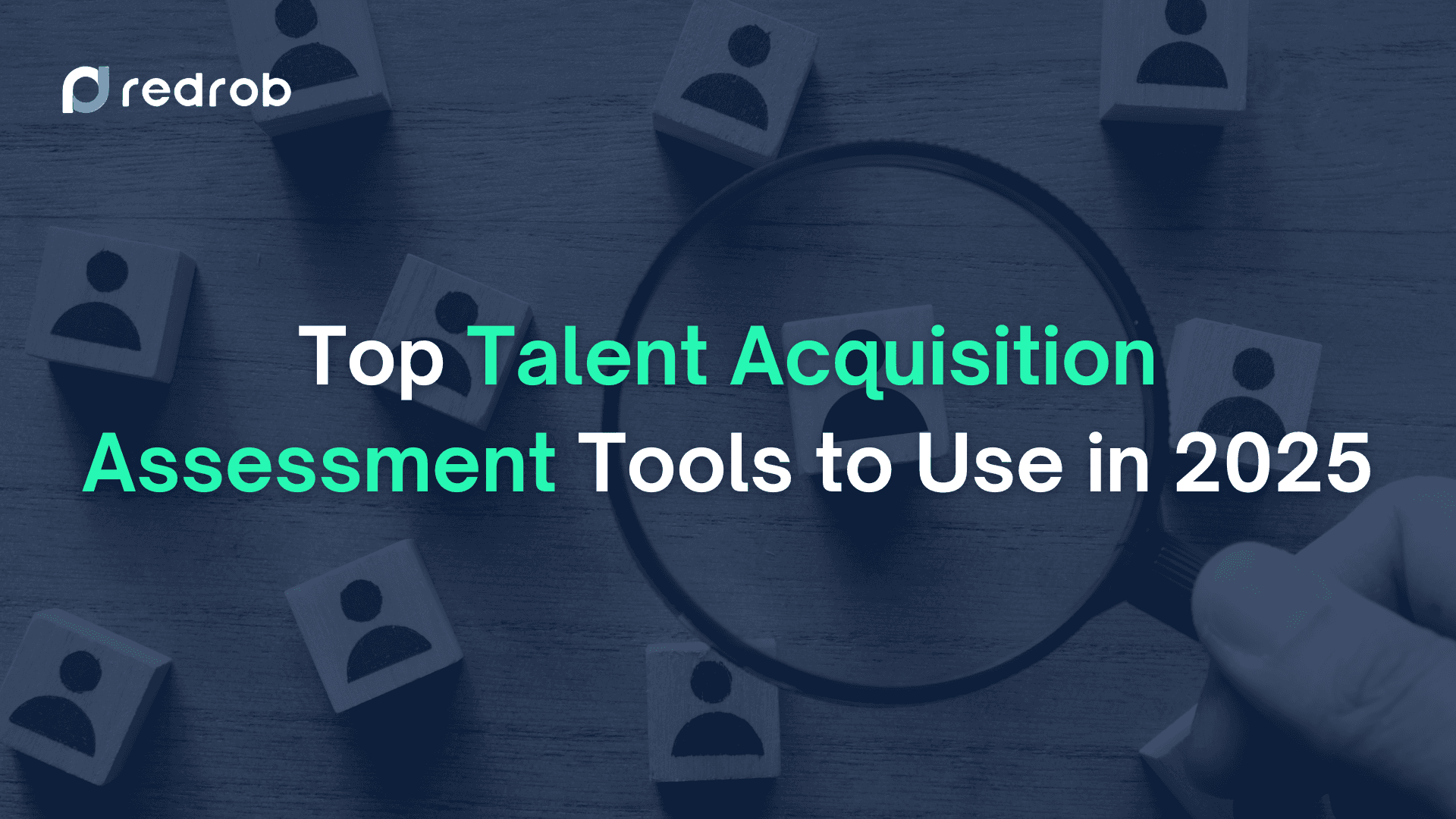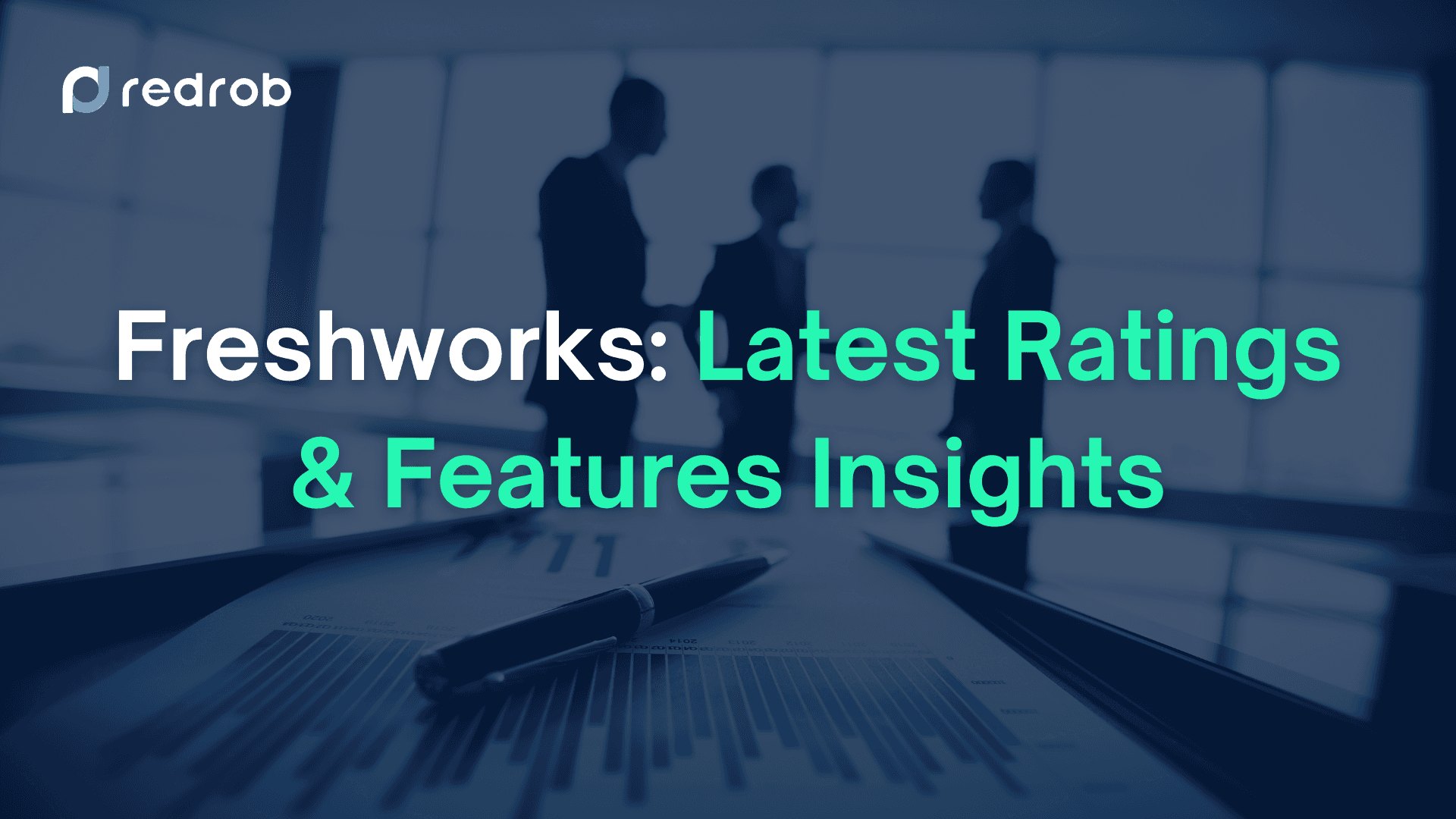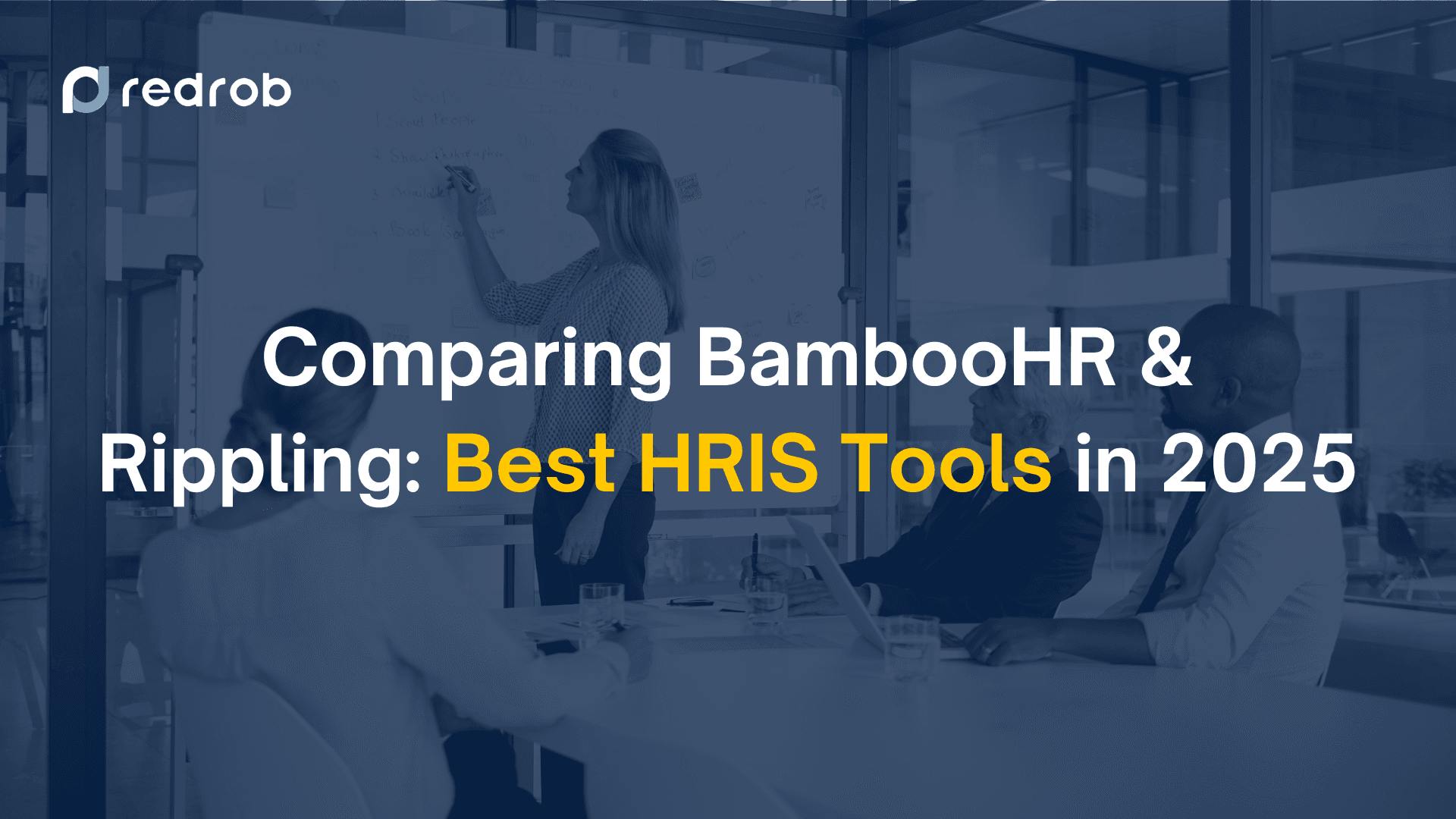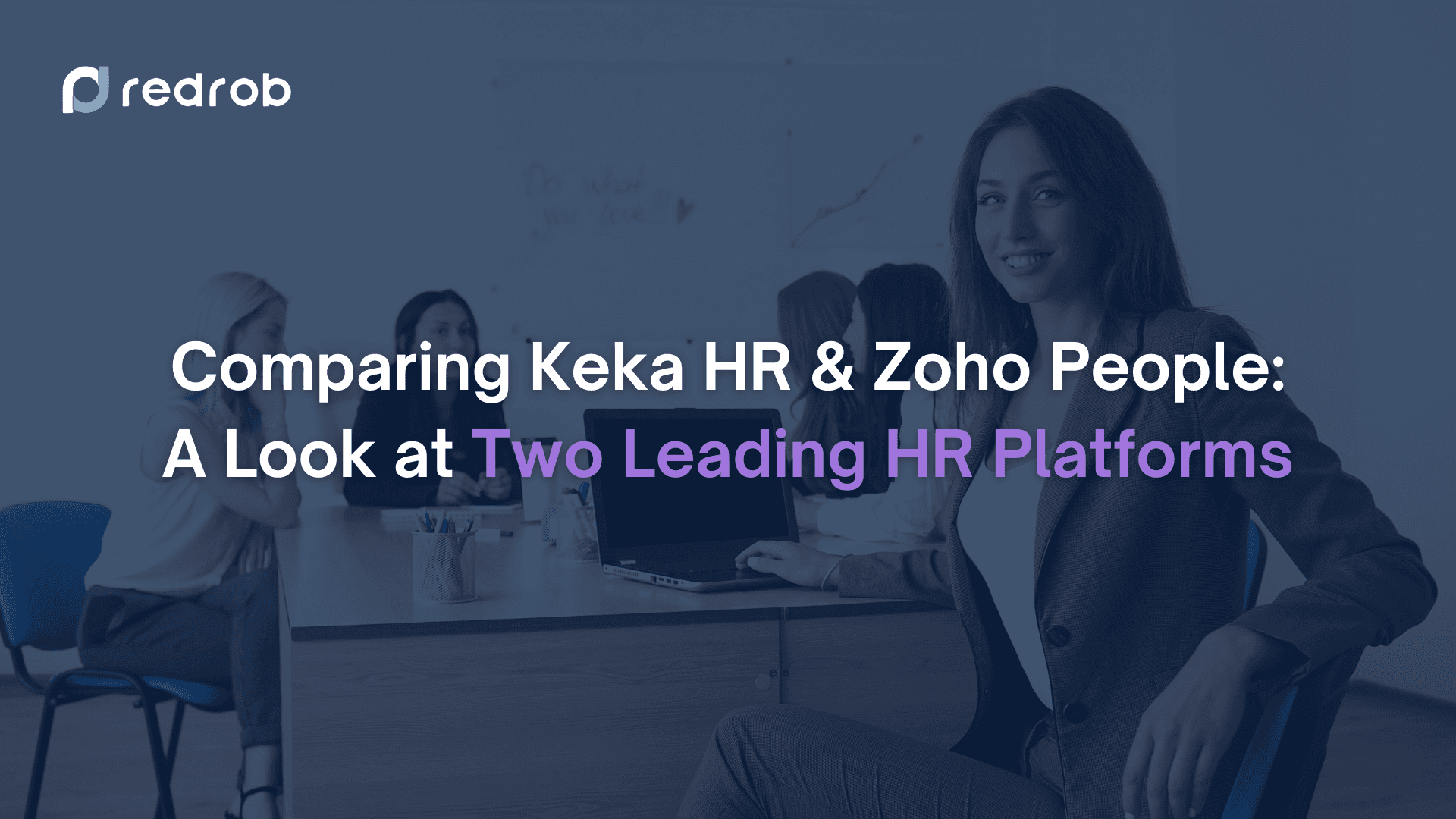Talent Acquisition
10 mins read
•
Dec 18, 2024

Soumyata Singh
Efficient hiring is more than a competitive advantage—it's essential for success. Every new hire can impact productivity, culture, and even your brand’s reputation. But with fierce competition for top talent, traditional hiring methods may not cut it anymore.
This is where talent acquisition assessment tools come into play. These tools offer a more innovative way to hire, letting you identify the best candidates faster and more accurately. You can move beyond resumes and interviews alone through data-driven assessments, gaining insight into candidates' skills, potential, and fit for your team.
Want to hire with more confidence, reduce biases, and enhance diversity in your hiring? Read on to discover the top talent acquisition assessment tools that can help your recruitment process in 2025.
Key Benefits of Talent Acquisition Assessment Tools
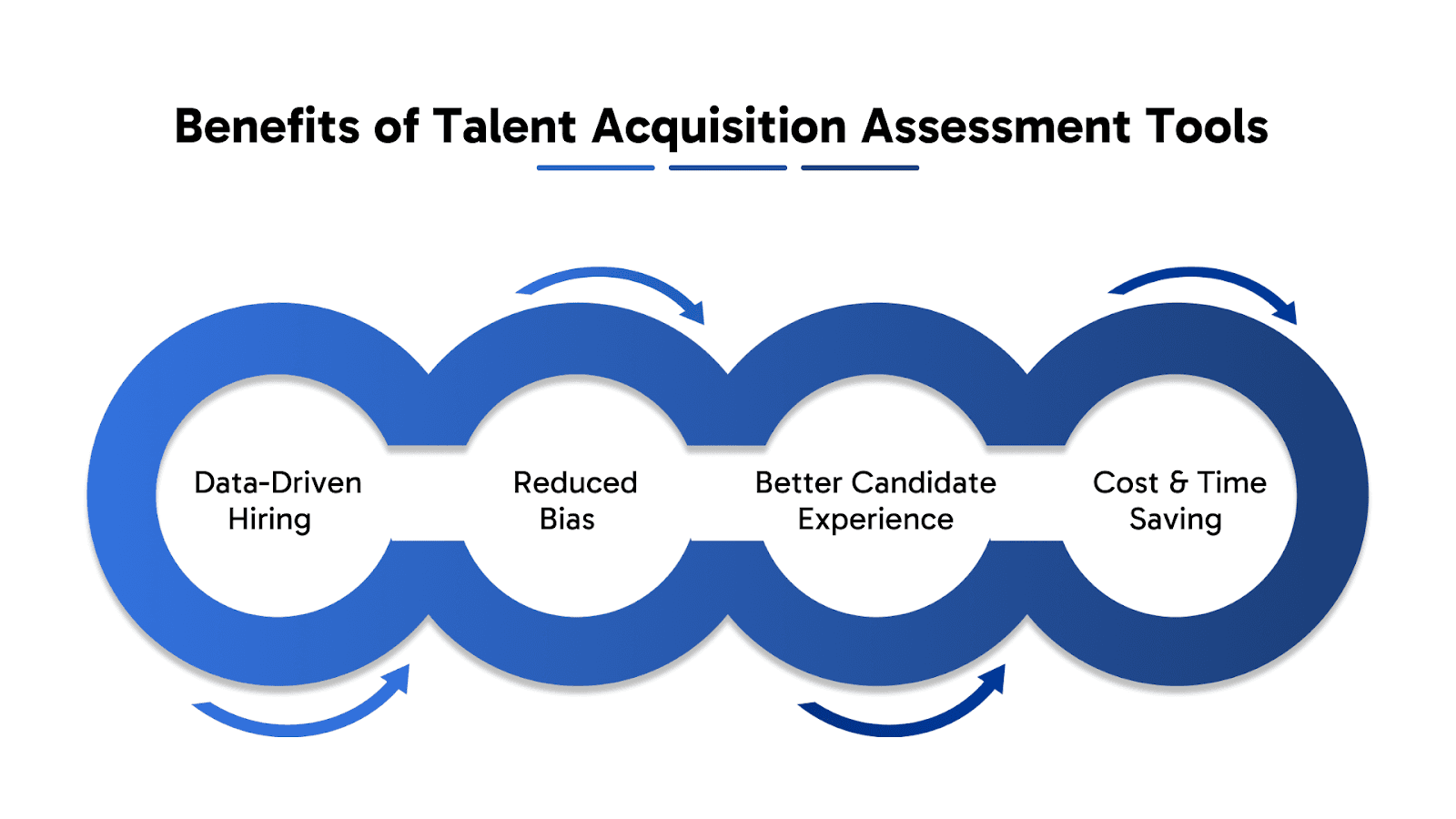
Talent acquisition assessment tools are transforming hiring, giving recruiters an objective, streamlined approach to identifying top talent. These tools offer key benefits that make the hiring process more efficient and help you build a diverse, high-performing team. Here’s how they can make a real impact on your recruitment.
1. Objective and Data-Driven Hiring Decisions
Hiring decisions based on data are more accurate. Talent acquisition assessment tools use metrics and analytics, providing a solid foundation for fair evaluations. Unlike traditional hiring methods that can rely heavily on “gut feeling,” data-driven assessments reduce subjectivity. They give insights into candidates' skills, strengths, and potential, ensuring you select the best fit for each role.
For instance, research shows that companies using data-driven hiring can improve employee retention by up to 23%. By letting data guide your decisions, you can avoid costly mis-hires.
2. Reduced Bias and Enhanced Diversity
Reducing bias in hiring is essential, and talent acquisition assessment tools can help. These tools remove certain biases by focusing on skills and capabilities rather than background. Features like anonymized assessments or structured scoring ensure that candidates are assessed solely on their abilities.
Studies show that companies with diverse teams are 35% more likely to outperform their competitors. Using assessment tools that focus on objective skills creates opportunities for a more inclusive workforce.
3. Improved Candidate Experience with Streamlined Processes
Candidates appreciate a straightforward, fair hiring process. Talent acquisition assessment tools streamline recruitment, making it faster and smoother for everyone involved. These tools allow candidates to showcase their abilities without excessive rounds of interviews, saving time and effort.
For example, incorporating assessments early in the process can reduce interview rounds by 40%, creating a positive candidate experience and reducing hiring bottlenecks. Candidates feel valued and confident that they’re being assessed fairly.
4. Cost and Time Savings in Recruitment
Every recruiter knows that hiring is a costly and time-consuming process. Talent acquisition assessment tools help reduce these costs by enabling faster, more accurate decisions. Automating parts of the process means less time screening unqualified applicants and more time focused on the right candidates.
Assessment tools can reduce hiring costs by up to 50% through faster time-to-hire and reduced turnover. Investing in assessment tools gives you more control over recruitment costs and frees up resources for other strategic priorities.
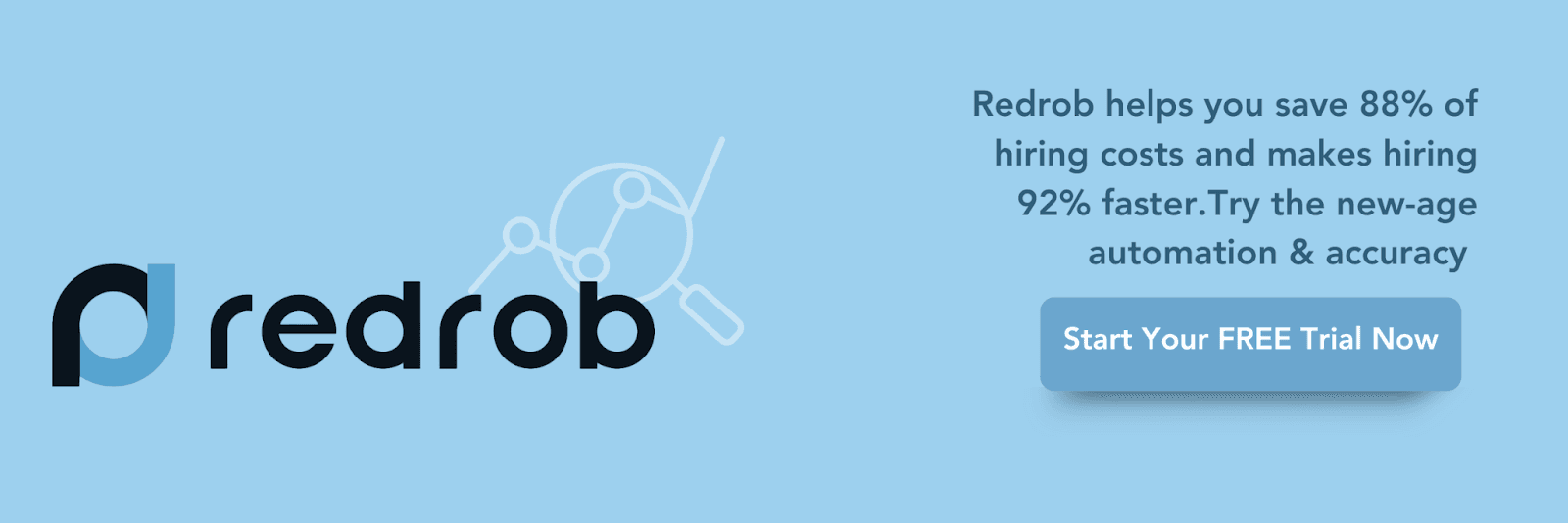
The next stage of recruitment involves choosing tools that align with your needs. Next, we’ll look at the different types of talent acquisition assessment tools available and how they can help you.
Types of Talent Acquisition Assessment Tools
The right talent acquisition assessment tools can provide a well-rounded view of a candidate’s skills, personality, and potential. These tools go beyond basic qualifications to evaluate critical abilities and qualities that matter most in the workplace. Here’s a look at some of the most effective types of assessment tools you can use.
1. Cognitive Ability Tests
Cognitive ability tests evaluate a candidate’s logical reasoning, problem-solving, and intellectual capacity. These tests are especially valuable for roles requiring strategic thinking and quick decision-making. They can predict how well candidates handle complex tasks and adapt to new challenges.
For example, a cognitive test might include questions on numerical reasoning or pattern recognition, providing insights into how efficiently a candidate can analyze and respond to data.
2. Job Simulations
Job simulations place candidates in realistic work scenarios, giving you a clear view of their performance. Whether solving a customer issue or completing a project task, job simulations measure skills in action. This type of assessment is beneficial for roles where hands-on abilities are crucial.
For instance, a simulation for a customer service role might involve responding to a customer inquiry, allowing you to see their communication style and problem-solving approach in real time.
3. AI-Powered Video Interviews
AI-powered video interviews offer a flexible, asynchronous way to screen candidates. These tools analyze candidate responses, assessing communication skills, body language, and more. They can also be programmed with bias checks, helping you keep the process fair.
These assessments are helpful for remote or large-scale hiring. With AI analysis, you can screen many candidates without needing to schedule live interviews for each one.
4. Personality and Emotional Intelligence Tests
Personality and emotional intelligence (EQ) tests help you understand a candidate’s interpersonal skills and adaptability. These assessments reveal qualities like empathy, teamwork, and self-awareness—essential for collaborative roles.
For instance, a personality test might indicate a candidate’s leadership style, while an EQ test can show how they manage stress and respond to others’ emotions.
5. Skill-Based Assessments
Skill-based assessments evaluate both hard and soft skills directly related to the role. These assessments are flexible and can be tailored to specific tasks, whether coding for tech roles or writing for content roles. They help you understand how well a candidate meets the technical and interpersonal demands of the position.
For example, a coding test may assess the programming skills of software developers, while a written assessment could measure a candidate’s communication ability for a marketing role.
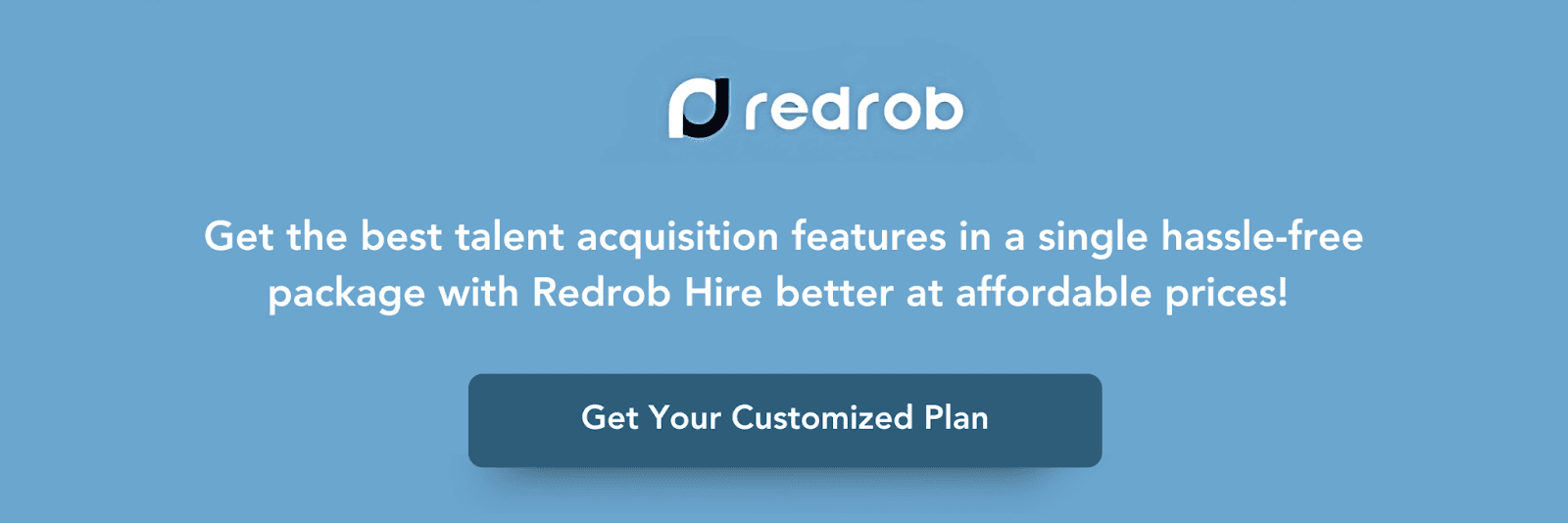
With a wide range of talent acquisition assessment tools, you can select options tailored to your hiring needs. Next, explore some of the top talent acquisition tools that can support your recruitment process.
Top Talent Acquisition Tools of 2025
Selecting the proper talent acquisition assessment tools is key to finding the best candidates efficiently and objectively. The tools below stand out for their unique features and effectiveness, offering solutions for diverse hiring needs in 2025.
1. Redrob
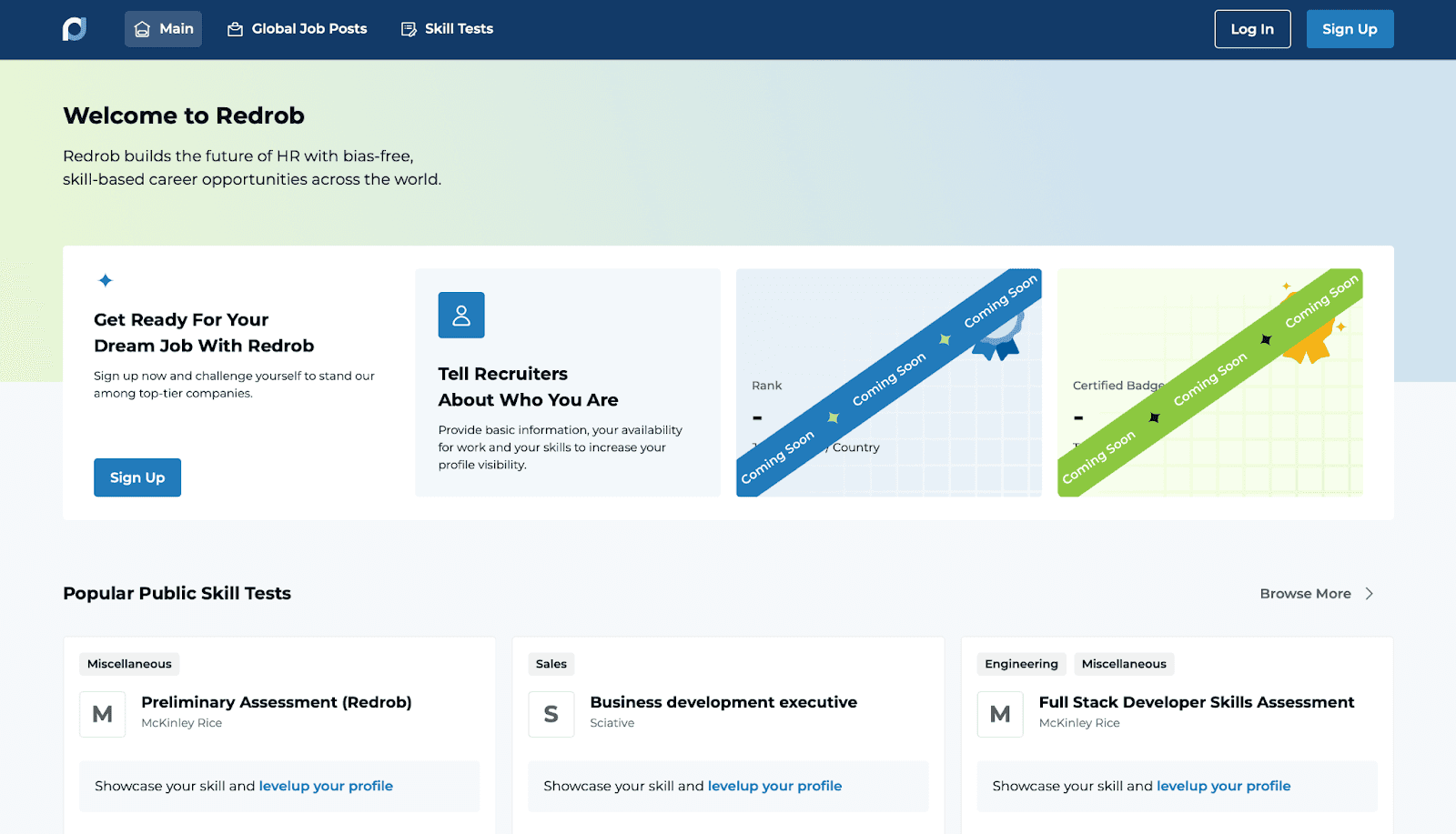
Redrob is a versatile assessment tool known for its broad range of AI-powered evaluation options. With its intuitive platform, Redrob offers customizable assessments across multiple industries, making it ideal for companies hiring diverse skill sets. It provides competency-based tests, behavioral assessments, and role-specific simulations.
This tool is best for organizations that need flexibility in designing assessments to fit unique roles. Redrob’s structured reports and easy-to-understand insights help hiring teams make quick, data-driven decisions.
2. iMocha
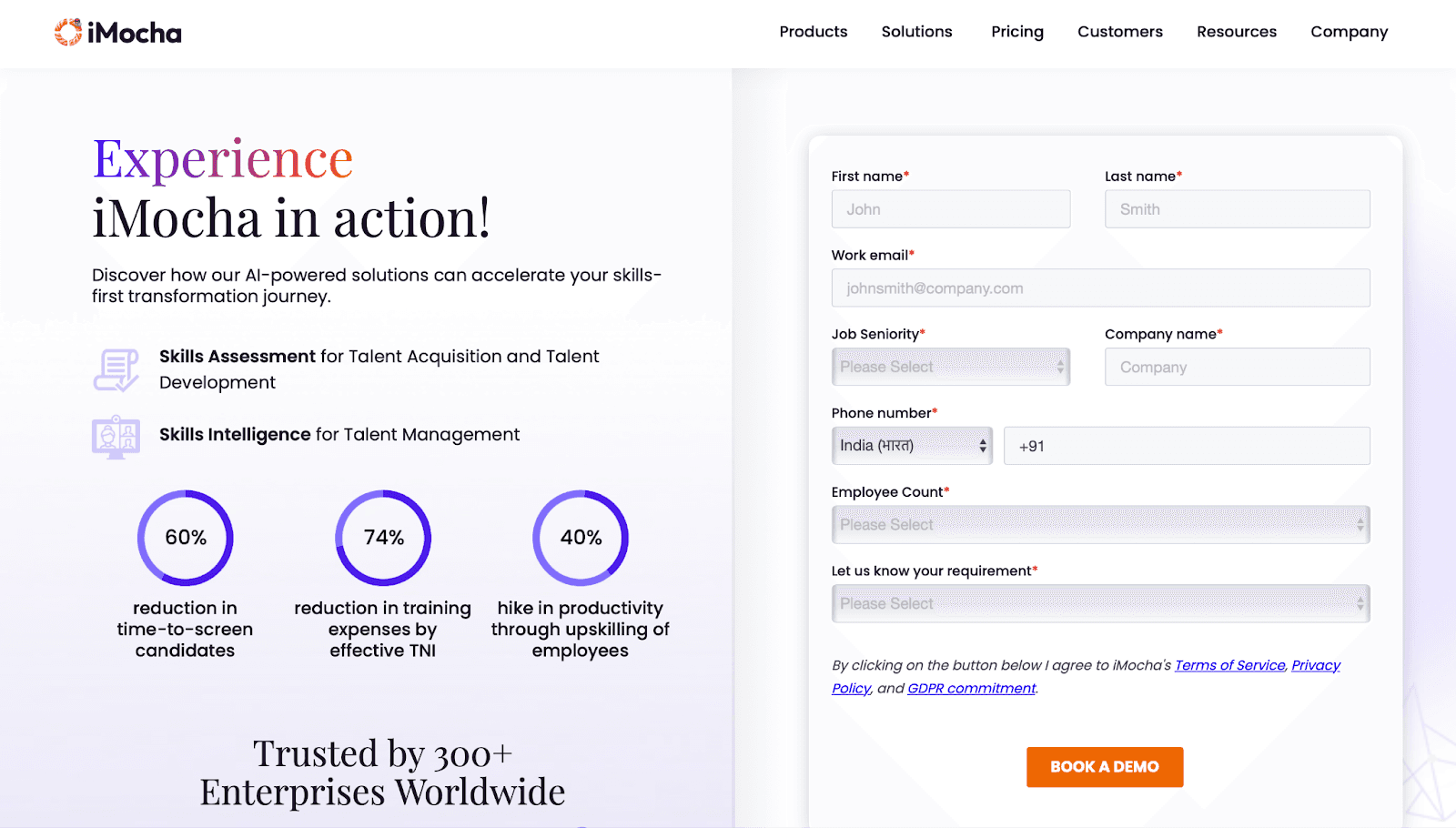
iMocha specializes in AI-powered skills assessments, allowing recruiters to test for over 2,000 skills across various domains, including IT, finance, and healthcare. Its AI-backed algorithms provide in-depth analysis, pinpointing strengths and areas for candidate improvement. With iMocha, you can test technical and non-technical skills, such as programming, communication, and customer service.
Ideal for tech-focused companies and those hiring for specialized roles, iMocha helps you match candidates to job-specific skill requirements. Its AI-powered proctoring feature reduces cheating risks, ensuring a fair assessment process.
3. SkillRobo
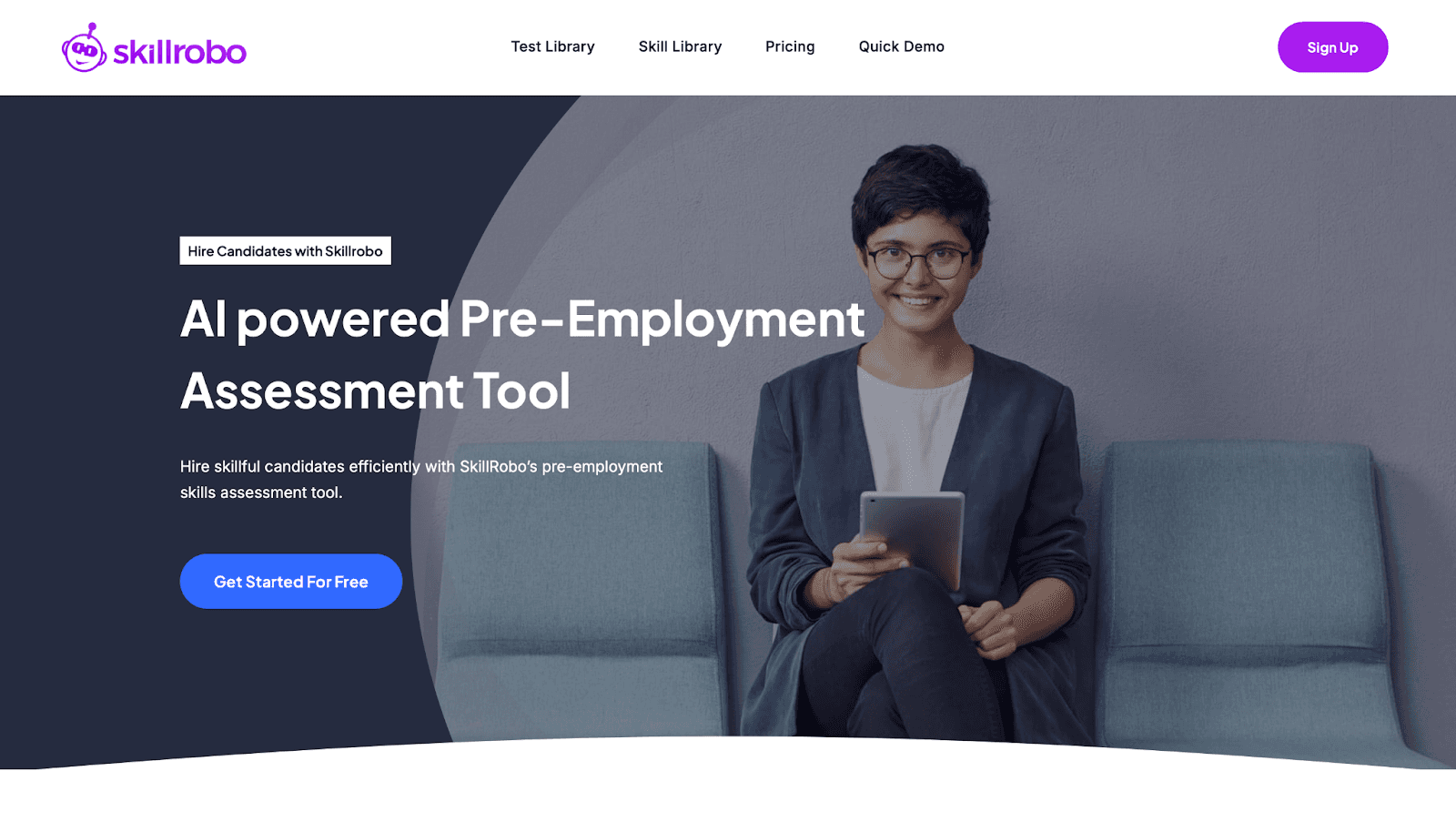
SkillRobo offers DISC personality assessments and numerical reasoning tests, making it an excellent choice for companies prioritizing personality and analytical skills. The platform’s DISC assessment reveals candidates’ behavioral traits, while its numerical reasoning tests evaluate problem-solving abilities.
SkillRobo is a strong fit for industries requiring a balance of technical skills and interpersonal abilities, such as sales and customer service. This tool’s easy-to-read reports help you better understand how candidates might adapt to team dynamics and handle on-the-job challenges.
4. Codility
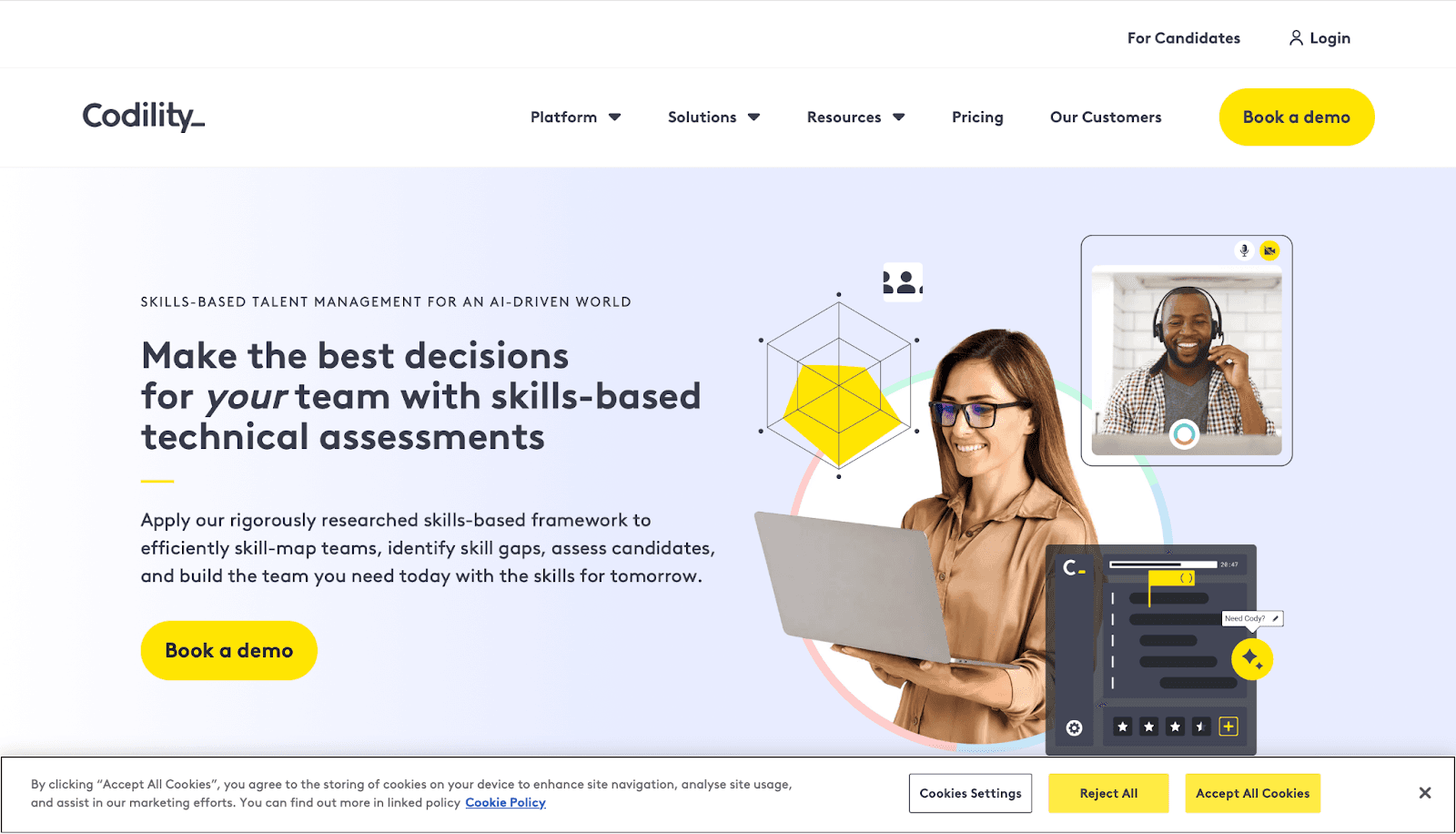
Codility is a go-to platform for technical hiring, offering coding tests and real-time technical interviews. It provides coding challenges that assess skills in languages like Java, Python, and SQL. Codility’s live interview feature allows for collaborative coding, helping you observe candidates’ problem-solving approaches in real time.
Perfect for tech companies and software development roles, Codility offers insights into candidates' coding proficiency and ability to solve complex problems under time constraints. With its anti-cheating mechanisms, Codility ensures that assessments are fair and reliable.
5. Mettl
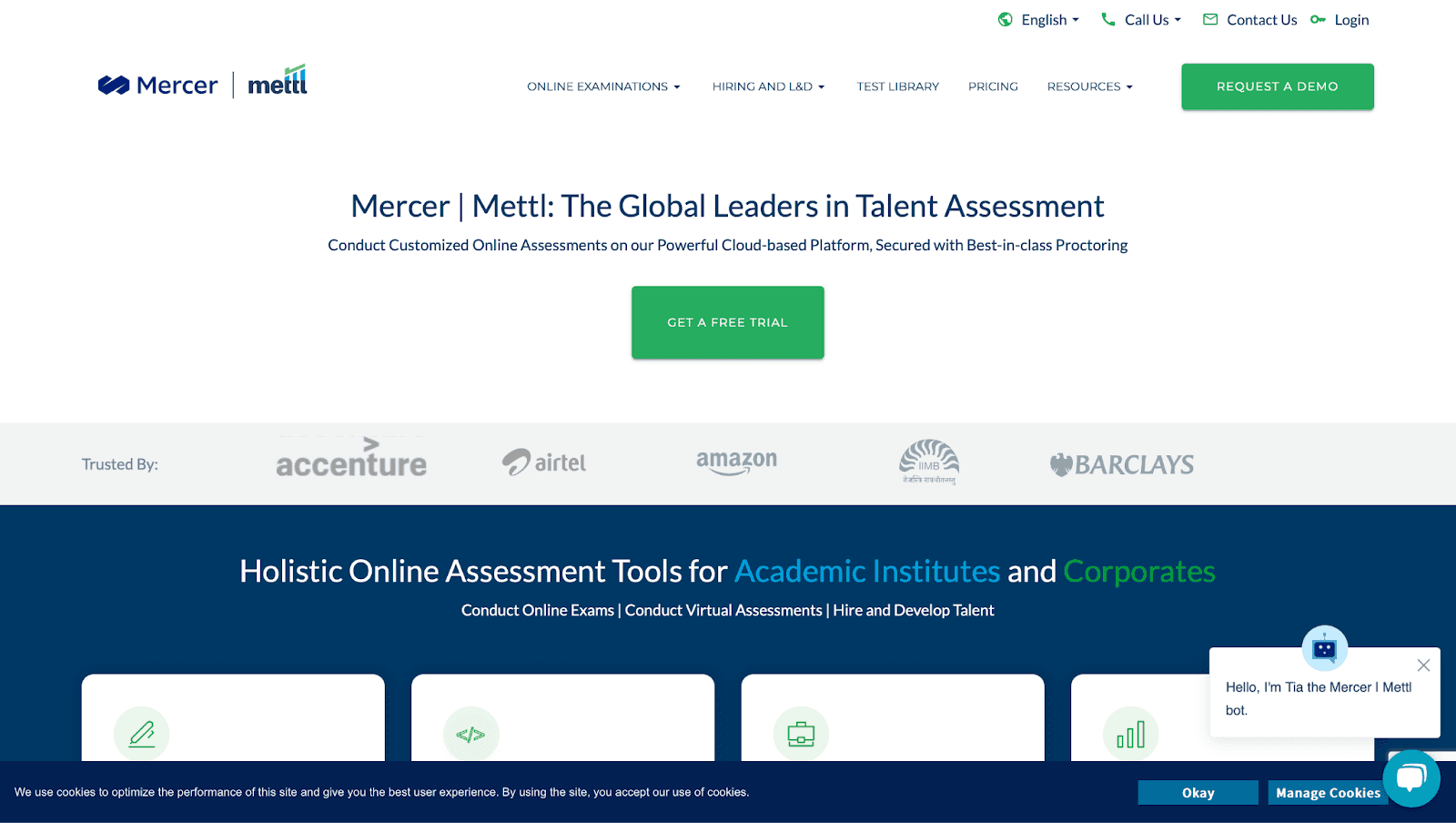
Mettl delivers a comprehensive suite of online assessments, including technical, aptitude, and psychometric tests. Its psychometric assessments look deeply into candidates’ personalities, cognitive abilities, and behavioral traits, which are critical for roles requiring high emotional intelligence.
Best suited for companies looking to understand the “whole candidate,” Mettl offers customizable assessments for any industry. Mettl’s user-friendly interface and robust analytics make it an asset for HR teams aiming to hire for skill and cultural fit.
6. TestGorilla

TestGorilla is a reliable pre-employment testing platform known for its anti-cheating features, making it ideal for remote hiring. It offers over 200 tests, including cognitive, technical, and language skills assessments. TestGorilla’s tests can be customized to match specific job requirements, allowing you to evaluate candidates thoroughly before moving forward.
This tool is excellent for companies that need high-volume hiring and those managing remote recruitment. TestGorilla’s ease of use and robust security make it an efficient tool for unbiased candidate evaluations.
7. HackerRank
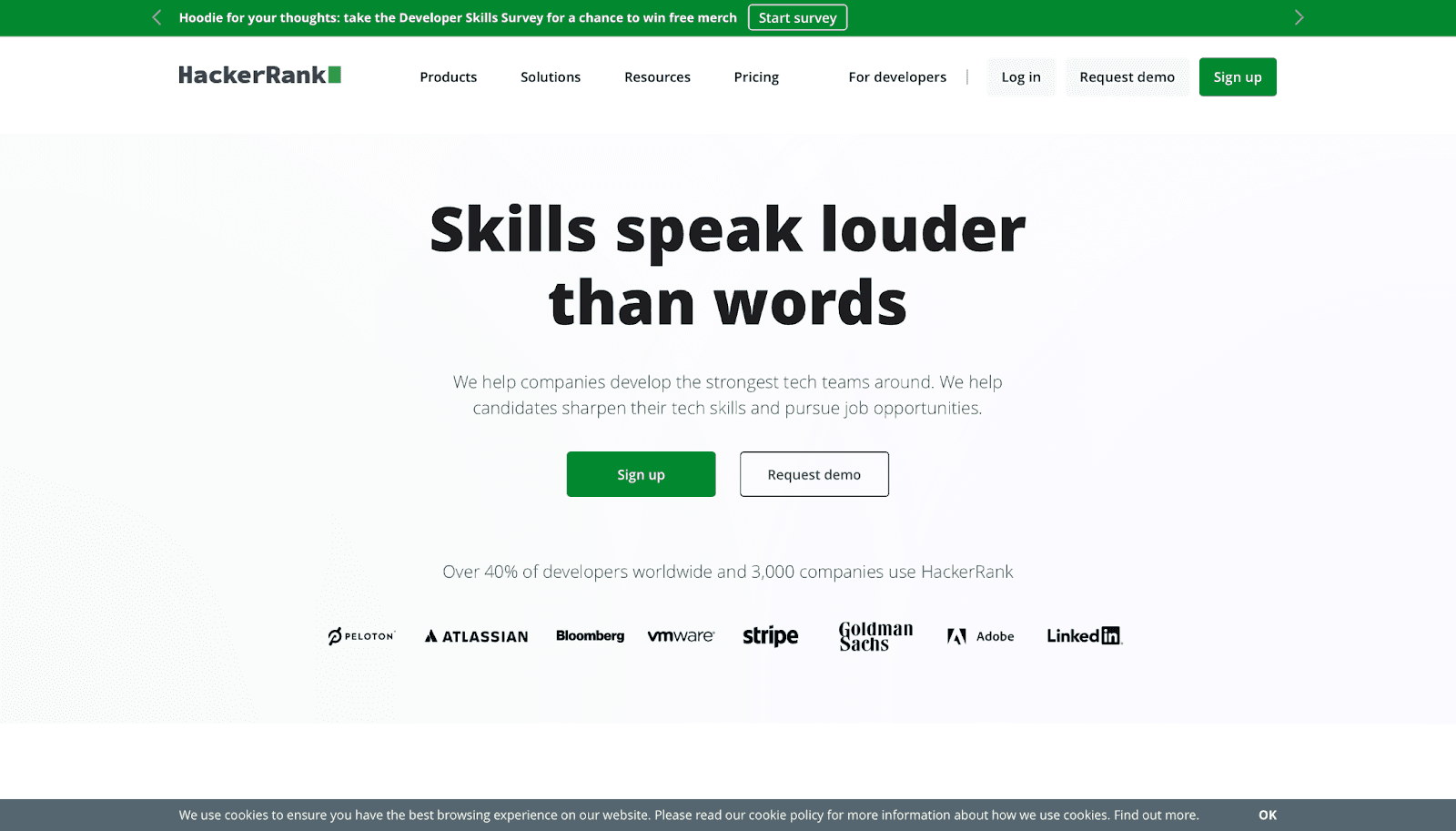
HackerRank is another strong tool for technical assessments, with coding challenges that gauge programming skills across various languages and frameworks. It offers a collaborative coding environment that lets you observe candidates’ thought processes and problem-solving abilities during live interviews.
Ideal for tech companies and startups, HackerRank helps you find candidates with the exact technical skills you need. Its real-time reporting and robust anti-cheating measures ensure that your assessments are fair and accurate.
8. HireVue
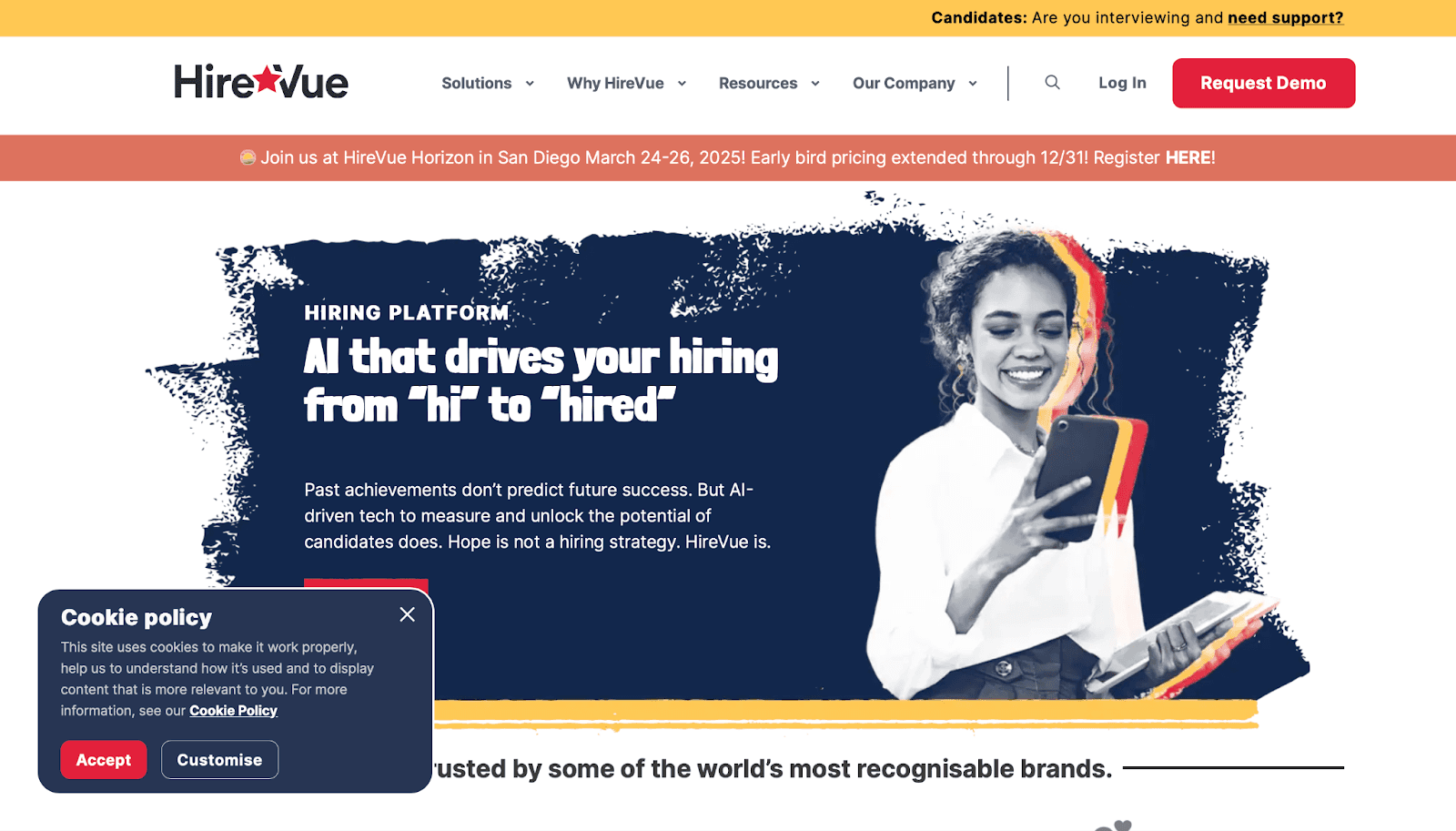
HireVue uses video and game-based assessments, supported by ethical AI, to evaluate candidates’ soft skills and cognitive abilities. The video interviews provide an interactive platform, while the game-based assessments add an engaging element for candidates. With ethical AI, HireVue aims to minimize bias in candidate evaluations.
This tool is perfect for companies hiring for communication-heavy or customer-facing roles. HireVue’s AI-driven insights allow you to gauge candidates’ interpersonal skills and suitability for team-based environments.
With these top tools, you can create a more efficient, unbiased, and insightful hiring process. Next, we’ll explore key factors to consider when choosing the best talent acquisition assessment tools for your company.
Factors to Consider When Choosing Assessment Tools
Choosing the right talent acquisition assessment tools is essential to building a streamlined, effective hiring process. When assessing options, it’s important to consider how well a tool meets your company’s unique needs, aligns with your current systems, and simplifies the experience for everyone involved. Here are the top factors to keep in mind.
1. Customizability and Context Relevance
Your assessment tools should be adaptable to the specific roles and skills you’re hiring for. Customizable tools allow you to design assessments that reflect a position's actual tasks and challenges. This way, you’re not just testing general skills—evaluating the abilities that directly apply to the role.
For example, a tool with flexible project-based tests will be more effective if you're hiring for a creative role. Tools that offer customization can improve the quality of your hiring decisions, as they deliver highly relevant results to your team’s needs.
2. Integration with Existing Systems
A seamless integration with your existing systems can make a huge difference in efficiency. Many talent acquisition assessment tools integrate directly with applicant tracking systems (ATS) or HR software, streamlining your workflow and minimizing administrative tasks. Integrated tools can save you time and ensure all candidate data is easily accessible.
When a tool syncs with your ATS, you can track candidate progress from assessment to hire without switching platforms. This improves organization, reduces errors, and creates a smooth hiring experience for your team and the candidates.
3. Accuracy and Reliability of Test Results
An effective tool provides accurate, consistent results that you can trust. High accuracy and reliability mean you’re making hiring decisions based on dependable data rather than chance. Look for tools validated for reliability and include anti-cheating features to ensure fairness.
For instance, tools with proctoring capabilities or AI-driven monitoring help maintain the integrity of the assessments. By choosing a tool known for its precision, you can confidently select candidates who best fit your team.
4. Ease of Use for Recruiters and Candidates
A user-friendly assessment tool saves time and reduces frustration for everyone involved. Tools that are intuitive and easy to navigate help recruiters and candidates stay focused on the assessment itself rather than dealing with technical issues. An accessible, smooth experience also reflects well on your company.
A straightforward process leaves a positive impression and helps candidates perform at their best. For recruiters, a tool that’s easy to set up and manage streamlines the hiring process, making it more efficient overall.
Transitioning to the next step, let’s discuss best practices for making the most of your talent acquisition assessment tools to maximize their impact.
Integrating Assessment Tools into Your Hiring Process
Integrating talent acquisition assessment tools into your hiring process can streamline workflows, improve accuracy, and help you identify top candidates faster. These tools simplify initial screenings, assess communication skills, and provide data to make confident hiring decisions. Here’s how to make these tools essential to your hiring journey.
1. Automating Initial Candidate Screening
Automation in candidate screening speeds up your hiring process and reduces manual work. Using talent acquisition assessment tools to handle the initial screenings, you can efficiently filter applicants and focus only on the most qualified candidates. These tools evaluate skills and qualifications objectively, allowing you to identify potential talent quickly.
For instance, an assessment tool can pre-screen for required skills, such as coding ability or problem-solving skills. This helps your team to manage high application volumes without sacrificing quality, ensuring you don’t overlook suitable candidates.
2. Incorporating Video Interviews for Candidate Communication Assessment
Video interviews allow you to effectively assess candidates’ communication skills and interpersonal abilities. You can create a consistent experience with video interview tools where candidates answer the same questions. Some talent acquisition assessment tools use AI to analyze body language, tone, and word choice, providing deeper insights into each candidate’s personality and suitability for team dynamics.
Video interviews are beneficial for roles that require strong communication skills. They also save time by enabling asynchronous interviews, allowing candidates to record responses at their convenience, and letting you review them as needed.
3. Using Assessment Results to Guide Final Hiring Decisions
The data generated by assessment tools can significantly inform your final hiring decisions. By analyzing scores and insights from various assessments, you can build a complete picture of each candidate’s strengths and suitability for the role. This data-driven approach helps you make unbiased choices and ensures your hires align with the job requirements and company culture.
Using objective assessment results for final hiring decisions reduces the risk of relying solely on intuition. This structured approach is especially beneficial when selecting closely matched candidates, allowing you to base your choice on factual performance metrics.
As you continue integrating these tools, remember that using talent acquisition assessment tools effectively requires best practices. Next, explore some proven methods to help you get the most out of your chosen tools.
Best Practices for Utilizing Talent Acquisition Tools
To maximize the benefits of talent acquisition assessment tools, it’s essential to approach their use strategically. Implementing these tools with care ensures you get the most accurate insights while adapting to evolving hiring needs. Here are some key practices that will help you fully leverage the potential of these tools.
1. Pilot Testing Tools Before Full Implementation
Conduct a pilot test before you roll out new assessment tools across your organization. A small-scale trial lets you observe how well the tool works in real scenarios and gives you time to make any adjustments. This way, you can identify any limitations and ensure the tool aligns with your hiring objectives before committing fully.
Pilot testing also lets you gather feedback from your team and even a few test candidates. This initial feedback can highlight any areas for improvement, ensuring a smoother transition when you implement the tool organization-wide.
2. Regularly Updating Assessment Criteria and Tools
Hiring needs to evolve, and so should your assessment tools and criteria. Regularly review the skills and attributes you’re testing for to ensure they remain relevant to each role. For instance, a tech-focused company might need to update its coding assessments as new programming languages emerge. Keeping assessment criteria current ensures that you’re always hiring based on the latest industry standards.
Additionally, check in with your talent acquisition assessment tools provider for any software updates or new features that could enhance your hiring process. Staying proactive helps your recruitment process remain fresh and relevant.
3. Analyzing Assessment Data to Inform Recruitment Strategies
The data generated by your talent acquisition tools offers valuable insights. By analyzing this data, you can uncover trends, such as which skills are common among high-performing candidates or which stages of your assessment process may need refining. This data-driven approach allows you to fine-tune your recruitment strategies and improve decision-making across future hiring cycles.
Regular data analysis can also reveal the effectiveness of the assessments in predicting job success. Use these insights to adjust your process's weight or type of assessments, ensuring you continually improve hiring outcomes.
Adopting these best practices will help you get the most out of talent acquisition tools.
Assess Better and Hire Efficiently With Redrob
Talent acquisition assessment tools bring measurable benefits to modern hiring. They help you make data-driven decisions, reduce bias, improve candidate experience, and save valuable time and resources. These tools create a more structured, consistent approach to finding top talent.
One tool that stands out is Redrob. Known for its intuitive design and customizable assessments, Redrob offers comprehensive solutions to streamline your hiring process. Whether you’re screening for cognitive abilities, job-specific skills, or cultural fit, Redrob’s assessments empower you to make confident hiring choices.
Staying with traditional methods can hold you back. Embracing tools like Redrob helps modernize your recruitment process and keep pace with industry standards. With Redrob, you get - hundreds of customizable assessments, affordable pricing, visible hiring efficiency, and 88% cost savings.
Try Redrob today and experience a more innovative approach to talent acquisition.
